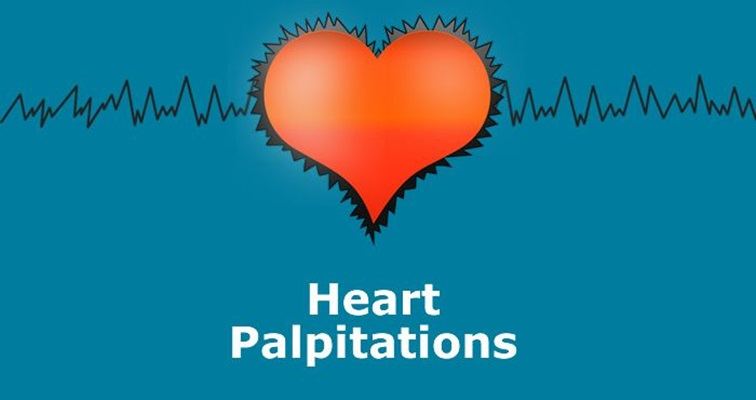Theobromine is a naturally occurring compound found in various plants, including cocoa beans, tea leaves, and the kola nut. As a member of the methylxanthine class of chemicals, it is closely related to caffeine and shares some of its stimulating effects. Theobromine is well-known for its presence in chocolate, where it contributes to the treat’s bitter taste and subtle stimulant properties. While theobromine has several health benefits, such as improving mood and cognitive function, its impact on the cardiovascular system, particularly its potential to cause heart palpitations, is a topic of ongoing research and interest.
What Is Theobromine?
Theobromine, chemically known as 3,7-dimethylxanthine, is an alkaloid that acts as a mild stimulant. It is similar in structure to caffeine, which is why the two substances have comparable effects on the body. The primary sources of theobromine are:
Cocoa Products: Dark chocolate and cocoa powder are rich sources of theobromine.
Tea: Certain varieties, particularly black tea, contain moderate amounts of theobromine.
Kola Nut: Used in the production of cola beverages, the kola nut contains theobromine.
SEE ALSO: Can Too Much Calcium Cause Irregular Heartbeat?
How Theobromine Affects The Body
Theobromine exerts its effects by inhibiting phosphodiesterase enzymes, leading to increased levels of cyclic adenosine monophosphate (cAMP) in cells. This mechanism is similar to that of caffeine but is less potent. Theobromine also antagonizes adenosine receptors, which contributes to its stimulant effects.
Potential Benefits of Theobromine
Mood Enhancement: Theobromine can improve mood by increasing serotonin levels.
Cognitive Function: It may enhance cognitive function and alertness.
Bronchodilation: Theobromine has a mild bronchodilator effect, which can benefit individuals with asthma or other respiratory issues.
Diuretic Effect: It acts as a diuretic, helping to reduce fluid retention.
The Cardiovascular System And Heart Palpitations
Heart palpitations are sensations of a rapidly beating, fluttering, or pounding heart. They can be triggered by stress, anxiety, caffeine, nicotine, fever, hormonal changes, and various medications. Although they are usually harmless, palpitations can sometimes indicate an underlying heart condition.
The cardiovascular effects of theobromine are complex and can vary depending on the dose and individual susceptibility.
While moderate consumption of theobromine-containing foods like chocolate is generally considered safe for most people, excessive intake may lead to cardiovascular symptoms, including heart palpitations.
Research on Theobromine And Heart Palpitations
Studies on theobromine’s cardiovascular effects have produced mixed results. Some research suggests that theobromine has a positive impact on heart health, while other studies indicate potential risks.
Positive Effects
Blood Pressure: Theobromine may help lower blood pressure by promoting vasodilation and improving endothelial function.
Anti-Inflammatory: It has anti-inflammatory properties that could benefit cardiovascular health.
Lipid Profile: Theobromine may positively influence lipid profiles by reducing LDL cholesterol and increasing HDL cholesterol levels.
Negative Effects
Heart Rate and Arrhythmias: High doses of theobromine have been associated with an increase in heart rate and potential arrhythmias, including palpitations.
Hypertension: In some individuals, excessive theobromine consumption may contribute to elevated blood pressure.
Mechanisms Leading to Palpitations
Theobromine’s ability to cause heart palpitations may be linked to its stimulant properties. By blocking adenosine receptors, theobromine can increase the release of catecholamines, such as adrenaline and noradrenaline, which stimulate the heart. This increased stimulation can lead to:
Increased Heart Rate: A higher heart rate can cause palpitations, especially in sensitive individuals.
Ectopic Beats: Theobromine may increase the likelihood of ectopic beats, which are extra beats that occur outside the heart’s normal rhythm.
Enhanced Sensitivity: Individuals with pre-existing heart conditions or heightened sensitivity to stimulants may experience more pronounced effects.
Individual Variability
The impact of theobromine on heart palpitations can vary widely among individuals. Factors influencing this variability include:
Genetics: Genetic differences in the metabolism of theobromine can affect its impact on the cardiovascular system.
Existing Health Conditions: Individuals with heart conditions or high sensitivity to stimulants may be more prone to experiencing palpitations.
Caffeine Sensitivity: People who are sensitive to caffeine may also be more likely to experience palpitations from theobromine.
Safe Consumption Levels
To minimize the risk of heart palpitations, it is essential to consume theobromine-containing foods in moderation.
Recommended guidelines include:
Chocolate: Limiting dark chocolate intake to 1-2 ounces (28-56 grams) per day.
Tea and Cola: Moderating consumption of theobromine-containing beverages, particularly those with added caffeine.
Conclusion
Can theobromine cause heart palpitations? The answer is nuanced. While moderate consumption of theobromine is generally safe and may even offer some cardiovascular benefits, excessive intake can potentially lead to heart palpitations, especially in sensitive individuals. Understanding your body’s response to stimulants and consuming theobromine-containing foods in moderation is crucial to minimizing the risk of adverse cardiovascular effects. As with any dietary component, individual variability plays a significant role, and those with pre-existing heart conditions or high sensitivity to stimulants should be particularly cautious.

